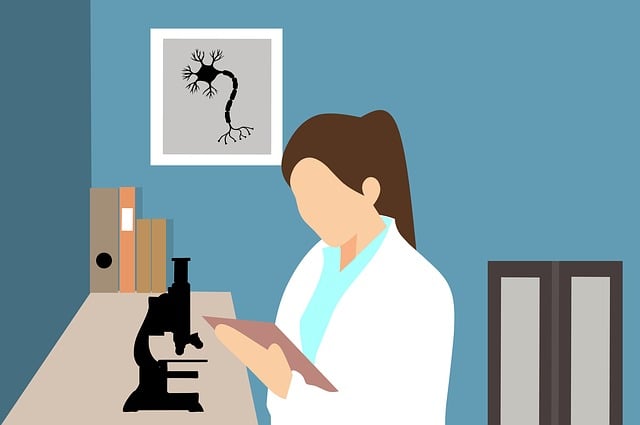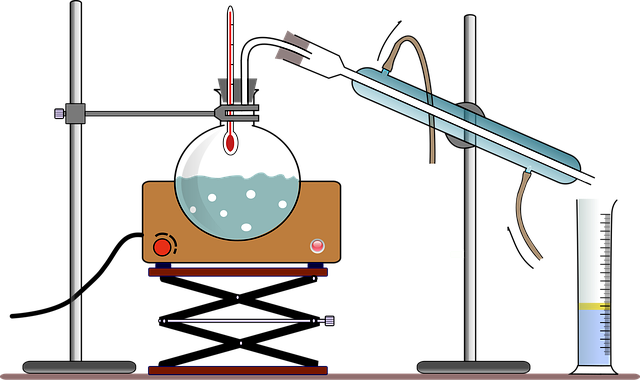Translation services for UK Scientific Review Articles are crucial for accurate communication of complex scientific ideas across languages, ensuring peer review integrity and global research collaboration. Professional translators with scientific expertise bridge linguistic gaps, maintaining data and research integrity while meeting journal standards. Selecting experienced providers with quality assurance ensures accessible, understandable submissions, enhancing publication success in a competitive field.
Need certified translations for your UK scientific review submissions? Accurate and professional translation services are crucial for ensuring your research reaches a global audience. This comprehensive guide explores the importance of precise translations, delves into UK scientific journal requirements, highlights the role of certified translators in peer review, and offers best practices for effective communication in science. Discover efficient translation processes, key considerations for choosing reliable services, and success stories that demonstrate the impact of high-quality translations on research outcomes.
- Understanding the Importance of Accurate Translations
- Navigating UK Scientific Journal Requirements
- The Role of Certified Translators in Peer Review
- Ensuring Quality and Consistency in Medical Research
- Efficient Translation Processes for Timely Submissions
- Key Considerations for Choosing a Reliable Service
- Best Practices for Effective Communication in Science
- Success Stories: How Translations Impacted Research Outcomes
Understanding the Importance of Accurate Translations

When submitting scientific review articles for publication in the UK, ensuring your content is accurately translated is paramount. Translation services play a pivotal role in bridging the language gap between researchers from diverse linguistic backgrounds. Accurate translations are essential to convey complex scientific concepts coherently, maintaining the integrity of the original research.
Inaccurate or vague translations can lead to misinterpretations, impacting the overall evaluation and potential acceptance of your article. Therefore, enlisting professional translation services specifically tailored for UK scientific publications is crucial. These services employ translators with expertise in both language pairs and scientific terminology, guaranteeing precise and culturally sensitive renditions.
Navigating UK Scientific Journal Requirements

Navigating UK scientific journal requirements can be a complex task, especially for researchers from abroad. One crucial aspect is ensuring that all submissions adhere to the specific language and formatting standards set by each journal. Many UK-based journals require translated articles for peer review, particularly when articles are submitted in languages other than English. This process is essential to maintain consistency and quality across all published research.
Translation services for UK scientific review articles play a vital role in facilitating this process. Professional translators with expertise in the field ensure that technical terms are accurately conveyed while preserving the integrity of the original research. These services help researchers meet the high standards expected by UK journals, ultimately enhancing the chance of a successful peer-review process and publication.
The Role of Certified Translators in Peer Review

In the fast-paced and highly competitive field of science, researchers often need to submit their work for peer review, a crucial step in the publication process. When it comes to translation services for UK scientific review articles, certified translators play an indispensable role. These professionals ensure that the nuances of complex scientific terminology are accurately conveyed from one language to another, preserving the integrity and quality of the research.
Certified translators possess not only exceptional linguistic skills but also a deep understanding of the specific domain. They are adept at navigating the technical jargon and specialized concepts inherent in scientific literature, ensuring that the translated text is both precise and coherent. This expertise is vital for maintaining the credibility of the peer review process, as it guarantees that submissions from diverse linguistic backgrounds can be accurately assessed and evaluated on an equal footing.
Ensuring Quality and Consistency in Medical Research

In the realm of medical research, where precision and clarity are paramount, ensuring quality and consistency in scientific communications is non-negotiable. When submitting articles for UK scientific reviews, precise translation services play a pivotal role in maintaining the integrity of your work. Professional translators with expertise in medical terminology are essential to convey complex ideas accurately across languages.
Translation services for UK scientific review articles must adhere to strict quality standards to avoid misinterpretations that could impact research outcomes. Consistent terminology and grammatical precision are crucial, ensuring your data and findings remain intact during the translation process. This meticulous approach guarantees that the original intent and significance of your research are faithfully represented in every language version.
Efficient Translation Processes for Timely Submissions

Efficient translation processes are paramount for researchers aiming to submit their work to UK scientific journals. Timely submissions require seamless communication between scientists and publishers, and professional translation services play a vital role in this process. These services employ skilled linguists who understand not just language, but also the nuances of scientific terminology.
Translation companies specializing in scientific literature offer streamlined workflows, ensuring your articles are translated accurately and quickly. They leverage advanced technologies, such as machine translation tools, while maintaining human oversight to preserve the integrity of your work. This combination enables researchers to meet tight deadlines, enhancing their chances of publication success in highly competitive journals.
Key Considerations for Choosing a Reliable Service

When selecting a translation service for UK scientific review articles, several key considerations come into play to ensure accuracy and reliability. Firstly, verify that the service provider has experience in handling scientific documentation, as they should have a deep understanding of technical terminology and specific formatting requirements. Look for professionals who specialize in academic or research translations to guarantee proficiency in this domain.
Secondly, check their certification and membership in relevant translation associations, such as the Institute of Translation & Interpreting (ITI) or the Association for Language Studies (ALS). These accreditations assure you that the service adheres to quality standards and best practices. Additionally, request examples of their work to assess consistency, accuracy, and style, ensuring your scientific review article receives the meticulous treatment it deserves.
Best Practices for Effective Communication in Science

Effective communication is paramount in the scientific community, where ideas and discoveries are shared to advance knowledge globally. When submitting articles for review, authors must ensure their work is accessible and understandable to a diverse audience. This includes careful consideration of language, as even minor errors in translation can misrepresent complex scientific concepts.
Translation services play a vital role in facilitating global collaboration by providing accurate, professional translations for UK scientific review articles. These services employ linguists who specialize in scientific terminology, ensuring the nuanced aspects of research are conveyed precisely. Authors should look for providers offering human-based translation, peer review, and quality assurance processes to guarantee the integrity of their work. By adopting these best practices, scientists can enhance their communication, foster international collaboration, and contribute significantly to the global scientific landscape.
Success Stories: How Translations Impacted Research Outcomes

In the realm of scientific research, where ideas and discoveries cross borders, translation services play a pivotal role in shaping global collaborations and knowledge dissemination. Many UK researchers have firsthand experience with the transformative power of professional translations for their review articles. These services ensure that complex scientific concepts are accurately conveyed across multiple languages, fostering international partnerships and expanding the reach of groundbreaking research.
For instance, consider a UK-based biologist whose pioneering work on rare diseases required submission to an international medical journal. With the assistance of certified translators, their article was not only linguistically precise but also culturally sensitive. This level of expertise resulted in the study gaining global recognition, leading to collaborations with researchers worldwide and ultimately advancing the understanding and treatment of these mysterious ailments. Such success stories highlight the importance of translation services for UK scientific review articles, ensuring that research outcomes resonate and contribute to a truly global scientific community.
When submitting scientific review articles for publication in the UK, accurate and certified translations are paramount. Navigating the requirements of scientific journals and ensuring quality in medical research relies on professional translation services that understand the nuances of scientific terminology. Choosing a reliable provider who prioritises efficiency and consistent quality control is essential to streamline your submission process. By adhering to best practices in communication, researchers can harness the power of translation to share their findings effectively globally, ultimately impacting the advancement of knowledge in their fields. Translation services for UK Scientific Review Articles play a pivotal role in fostering international collaboration and enhancing research accessibility.



